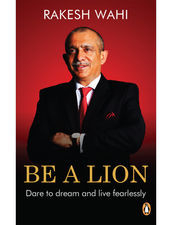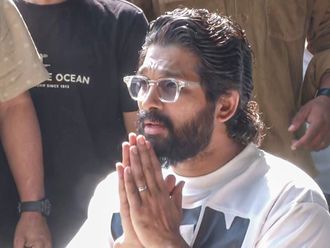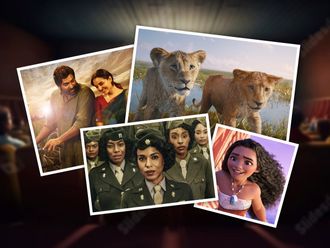
Be a Lion
By Rakesh Wahi, Penguin, 270 pages, $22.95
Is the lion a lazy animal, letting his pride do the tough part of hunting while he basks in the shade, and then claim the right to the first share of the kill? Or is he truly the king of beasts, with the great responsibility to protect his herd and continue his bloodline, making him the undisputed leader?
Rakesh Wahi believes it is the latter. “There is an unconscious desire for immortality that spurs the lion on,” he writes in his memoir, Be a Lion.
Wahi comes from a military-corporate background. His father, Colonel S.P. Wahi, was the chairman of India’s Oil and Natural Gas Corp as well as the Cement Corporation of India. An alumnus of Doon School, regarded as India’s best residential school, Wahi followed his father’s footsteps and went on to join the Indian army. A former officer of the Corps of Engineers, Wahi went on to become a serial entrepreneur who has distinguished himself mainly in the media and telecom sectors. He is the chairman of CMA Investment Holdings, which has representation through its portfolio in more than 22 countries. Based in Dubai, he is the co-founder of the ABN Group that includes CNBC Africa, Forbes Africa, ABN Digital, Murdoch University Dubai and a host of other companies.
An insight into how Wahi’s mind plays itself is evident in the very first chapter of the book where he pays homage to the various people who influenced him in his life. Wahi details several persons who have left an indelible mark on him. Apart from his parents and wife, he singles out his two mentors — his first commander in the Indian army, Colonel Jagannathan and US entrepreneur Rick Michaels, who was his first mentor in business. He feels people are critical to any organisation. “It is my belief that if you get the right people … you have a better chance of success. All successful businesspeople will acknowledge that the real secret to success is finding good people with complementary skills,” he writes.
After leaving the army in 1988, Wahi moved to the UAE. “I had 17000 rupees in my bank account, at that time not more than $500,” Wahi writes. He says he purposely avoided all the industries his father was associated with. He felt he needed to restart his life on a clean slate. “I realised that as long as I stayed in India, I would not be able to escape the shackles of a very well-recognised family name,” he writes.
Opportunity knocked on Wahi’s door when his sister Sunanda and her husband Rajeev offered him the opportunity to join them in their publishing business in Dubai. “It was the best opportunity I could have been given and the best decision I made,” he writes.
After finding his footing, Wahi ventured out on his own and began a small trading operation in Dubai with clients in the former Soviet Union countries, which he says provided gratifying returns. However, fate knocked on his door again in 1993, when he met Rick Michaels who ran a boutique investment bank Communications Equity Associates (CEA). The two struck a strong rapport with Wahi representing CEA’s interests in the Middle East. For Wahi, this was a new experience in his learning curve. “Fund-raising was new to me and gave me insight into the world of private equity,” he writes.
Opportunities sprang up as the TMT (Technology, media and telecommunications) sector was in the process of rapid expansion. This was especially in the aftermath of the explosion in cable television due to the first Gulf War, when CNN brought the visuals directly to our homes. Wahi and Carsten executed several projects during the late 1990s in this sector.
It was during this stage that Wahi met Zafar Siddiqi, who was then lobbying for the CNBC franchise in the Middle East. Through Wahi’s connections, Siddiqi raised the necessary funds for the venture. With this, the two formed an alliance that still holds strong today, with the successful launch of CNBC Africa and Forbes Africa.
Education is a sector close to Wahi’s heart. “In emerging markets, shortage of skills is a major impediment to setting up sustainable businesses. Consequently, capacity building is core to any growing business and we looked at several ways to do this,” he writes. With his footprint in media, it was thus natural to seek to start a journalism school in Dubai, the result of which was the establishment of the Murdoch University in Dubai, followed by a similar venture in Ghana with Lancaster University of the UK.
Teamwork, Wahi stresses, is the key to success. “Without the team, you are nothing. Leaders must be able to do everything that their troops are required to do… These tenets also apply when you move to the corporate world,” he writes.
The chapter ‘Lessons’ provides key insights for the budding entrepreneur. Mistakes, he writes, are a great way to learn. “You should experiment and make mistakes early in life, so that you absorb the shocks when you are very young and wiser for the future,” he writes. He covers a wide range of topics including hiring and retaining staff, raising funds, mentorship, communications and others.
Wahi’s passion for entrepreneurship is evident in the chapter of the same name. “You make a choice to engage in a business activity from scratch with your heart, soul and all your resources. It is your unique creation from conception to implementation,” he writes.
Be a Lion captures the unique life of a man from a privileged background who chose to blaze his own trail and not conform to traditional norms. The book serves as an insight into the troubled times in post-Soviet Russia, a part of Dubai’s history as it was widening its horizons beyond a trading port. But most of all, it serves as a guide to all budding entrepreneurs about the trials and tribulations that lie ahead of them.









